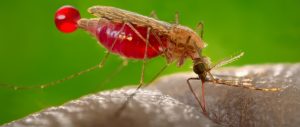The Nigeria Institute of Medical Research (NIMR) said it has discovered a new malaria vector called Anopheles stephensi in northern Nigeria. This was made known Monday by the institute’s Director General, Prof. Babatunde Salako.
Salako, who spoke with newsmen in Lagos during a birthday ceremony organised by his staff members, said it was the most recent research discovery.

He said that it was a rugged vector, very difficult to eradicate, and had not been found anywhere near West Africa.
The NIMR boss stated that this was a discovery by NIMR researchers and that had implications for malaria control in Nigeria. According to Salako, NIMR was currently looking at vaccines.
“We have done a lot of studies on vaccines, and we are looking at vaccine development.
“We are working with five groups in a consortium to develop world local vaccines in Nigeria which was different from production,” he said.
Salako said that the idea was to ensure that Nigerian researchers could take it from the beginning to the end in developing vaccines.
He said, “If tomorrow, we had a new epidemic or disease, known or unknown, it would be possible for Nigeria to develop its own vaccine”.
He said that NIMR was also looking at the human body’s effectiveness, side effects, and responsiveness to COVID-19 vaccines.
He said that the institute looked at three COVID vaccines, and 2,000 people in Nigeria would be tested to know whether the vaccines evoked response among Nigerians.


